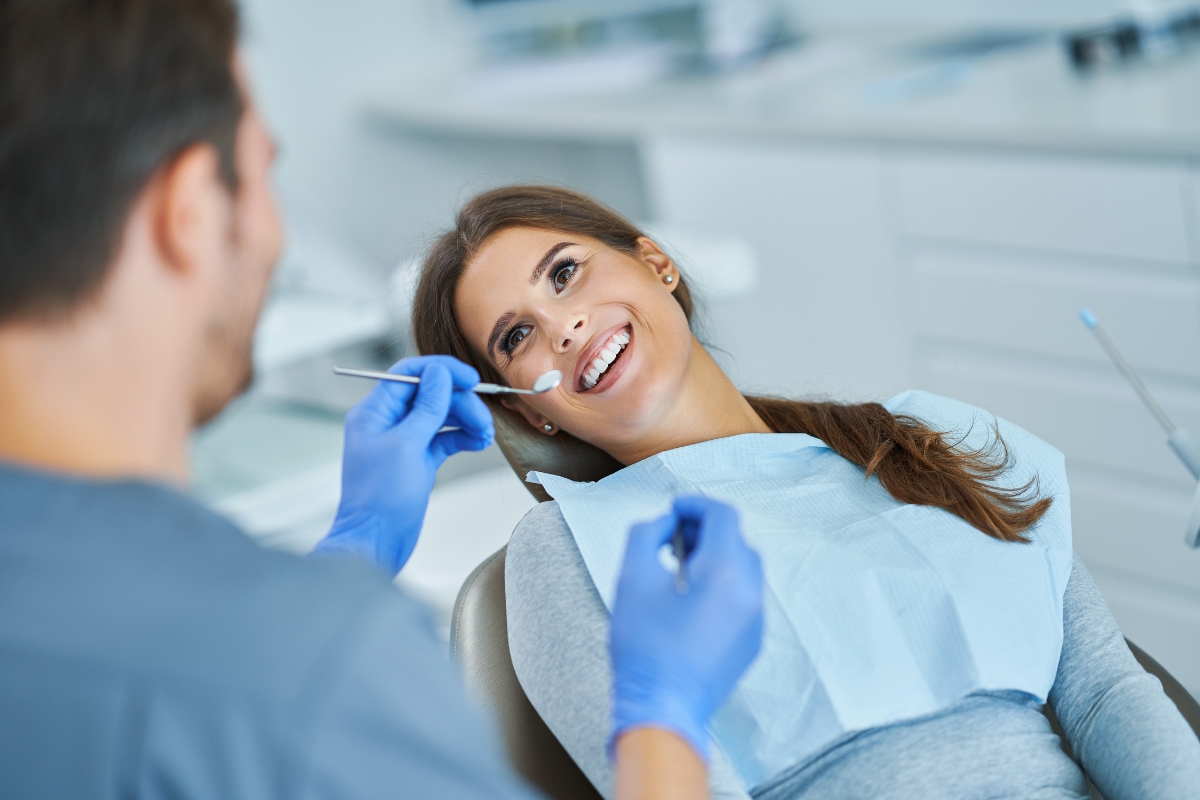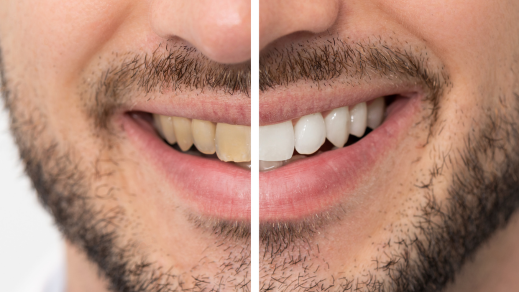San Jose, CA
Professional vs. DIY Whitening of Teeth: Pros, Cons, and Results


A radiant smile is often seen as a hallmark of confidence and beauty. As the pursuit of whiter teeth gains momentum, the debate between professional dental treatments and do-it-yourself (DIY) methods becomes more prominent. Both avenues offer promising results, but they come with their own set of advantages, drawbacks, and considerations. Understanding the nuances between professional and home dental whitening is pivotal in making an informed choice for achieving that gleaming smile.
Professional tooth whitening:
Professional teeth whitening, conducted under the supervision of dental experts, involves various techniques like in-office bleaching, laser treatments, or custom-made trays fitted by dentists. The process typically employs higher concentrations of bleaching agents, ensuring quicker and more pronounced results. Dentists tailor these treatments to individual needs, addressing specific concerns and ensuring safety during the procedure. The advantage of professional whitening lies in its precision, expertise-driven approach, and potentially faster results compared to home remedies.
However, the cost associated with professional treatments can be substantial, often surpassing DIY alternatives. Additionally, scheduling appointments and adherence to follow-up visits might pose challenges for some individuals. While the results are often impressive, they come at a higher financial investment.
DIY Whitening Your Teeth:
DIY dental whitening encompasses a wide array of over-the-counter products, ranging from whitening strips, gels, and toothpaste to natural remedies like activated charcoal or baking soda. These options are readily available, relatively inexpensive, and offer convenience, allowing users to apply treatments in the comfort of their homes. Moreover, DIY methods provide flexibility in usage frequency and duration.
However, the efficacy of DIY products can vary significantly. Over-the-counter solutions may offer a different level of whitening than professional treatments due to lower concentrations of bleaching agents. Improper use or overuse of these products might lead to tooth sensitivity or gum irritation. Furthermore, while cost-effective, cumulative expenses can add up if multiple products are needed to achieve desired results.
Effectiveness and Results:
The effectiveness of teeth whitening methods varies depending on a number of factors, including the initial shade of the teeth, the cause of discoloration, and the treatment chosen. Professional procedures, owing to their higher concentration and professional oversight, deliver quicker and more noticeable results. On the contrary, DIY methods take longer to show noticeable changes and may not achieve the same level of whitening. However, for individuals with minor staining or seeking slight improvements, DIY products could suffice. Patience and consistent use are crucial with DIY methods to achieve desired outcomes.
Safety Considerations:
Safety remains a paramount concern in whitening the teeth. Professional treatments, conducted under the supervision of trained dentists, ensure a controlled and safe environment. Dentists evaluate oral health conditions beforehand, minimizing risks of adverse reactions or damage to teeth and gums. Conversely, DIY methods might need more professional assessment, potentially leading to misuse, overuse, or adverse effects, especially for individuals with sensitive teeth or existing dental issues.
Long-Term Impact:
The longevity of whitening results differs between professional and DIY methods. Professional treatments often provide longer-lasting effects, given the higher concentration of whitening agents and the custom-fit trays that help maintain results. Conversely, DIY methods might necessitate more frequent application to sustain the achieved whiteness. Consistency in oral hygiene practices and dietary habits significantly influences the duration of results in both cases.
Cost Analysis:
Cost plays a pivotal role in choosing between professional and DIY bleaching of teeth. Professional treatments, while more expensive initially, might provide more substantial and quicker results. Conversely, DIY options are more budget-friendly but might require multiple purchases or prolonged use for desired outcomes. Considering the cost-effectiveness in the long run is crucial while weighing these options.
Maintenance and Aftercare:
Post-treatment care is vital to sustain whitening results. Dental professionals often guide post-whitening oral care, including dietary recommendations and proper oral hygiene practices. In the case of DIY methods, adherence to instructions and regular dental check-ups are essential to monitor any adverse effects and maintain whitening results.
Personal Preferences and Convenience:
Individual preferences and lifestyle play a significant role in choosing between professional and DIY whitening of the teeth. While professional treatments offer expert supervision and potentially faster results, some individuals might prioritize the convenience and flexibility of DIY methods. Factors like time constraints, comfort levels with dental procedures, and desired speed of results influence this choice.
Achieving a brighter smile involves careful consideration of various factors, including effectiveness, safety, cost, and personal preferences. Professional teeth whitening by an expert cosmetic dentist in San Jose ensures expert guidance, precision, and potentially quicker results. DIY methods, while more accessible and cost-effective, may require patience and consistency to achieve desired outcomes. Selecting the best teeth-whitening technique for a durable, brilliant smile requires careful consideration of safety, effectiveness, and long-term maintenance.





